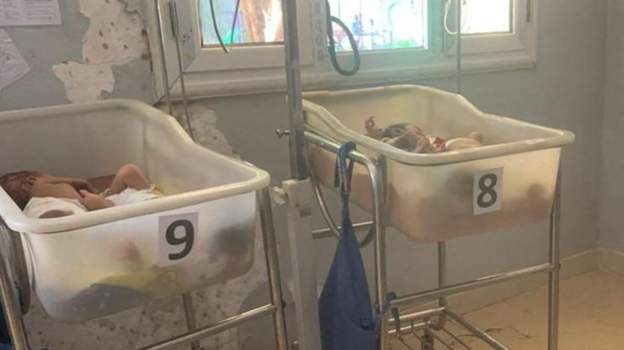
Nearly 300 children have been safely rescued from an orphanage in Sudan’s capital, Khartoum, aid agencies say.
They had been staying at the Mygoma Orphanage, where more than 70 children are reported to have died from hunger and illness since the conflict in Sudan broke out in mid-April.
The orphanage was in an area of the city “where the conflict has been raging”, according to the International Committee of the Red Cross (ICRC).
Aged between one month and 15 years, the 297 children have been taken to Wad Madani, about 200km (125 miles) from Khartoum, it said.
They are now at a transit centre and the UN children’s agency (Unicef) says it is working with the relevant authorities in identifying foster families for them.
“The safe movement of these incredibly vulnerable children to a place of safety offers a ray of light in the midst of the ongoing conflict in Sudan,” said Mandeep O’Brien, a Unicef representative.
DR Congo’s former health minister cleared of covid funds fraud
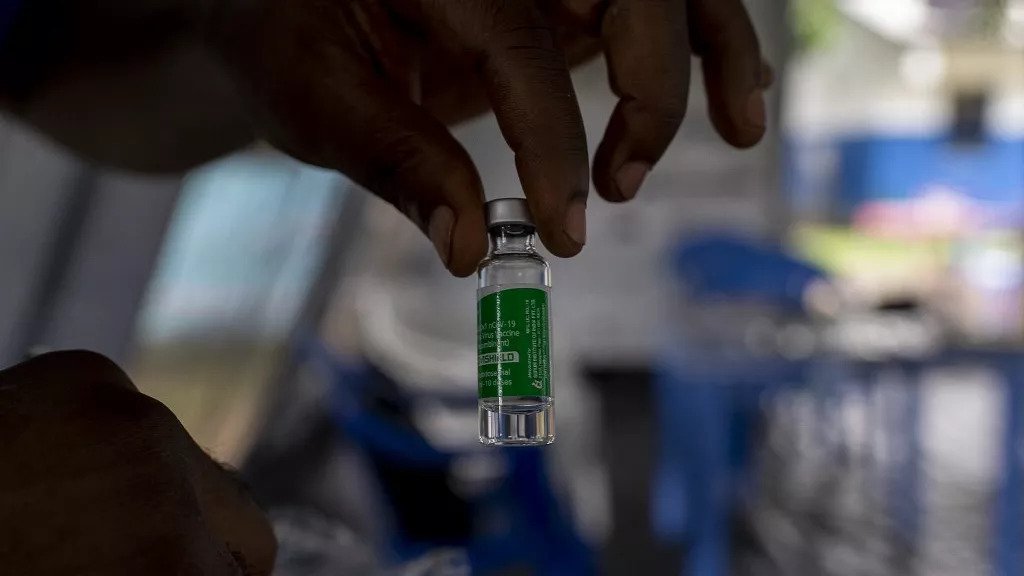
ARSENE MPIANA/AFP or licensors
By Rédaction Africanews with AFP
A former Minister of Health of the Democratic Republic of Congo (DRC) prosecuted and briefly detained in 2021 for an alleged embezzlement of funds allocated to the fight against Covid-19 was acquitted on Wednesday by Congolese justice, announced his lawyer.
Eteni Longondo, Minister of Health from 2019 to 2021, had been suspected by the General Inspectorate of Finance (IGF) of having embezzled more than 7 million dollars intended for the fight against the pandemic.
Mr. Longondo, who spent around three weeks in pre-trial detention in August-September 2021, has always denied embezzling the money. “He was acquitted today by the Court of Cassation, which concluded that there was no incriminating evidence” Mr. Longondo, his lawyer, Hugues Pulusi Eka, told AFP.
In the DRC, the Court of Cassation is competent to judge in first and last resort acts attributed in particular to members of the government.
Regarding the suspicions that had triggered proceedings against the former minister, Me Pulusi simply noted that “the IGF is an OPJ (judicial police officer), not a judge”. “Justice has decided, that’s the most important thing,” added the lawyer.
ANC’s Mashatile cautions against rushing from coal power to renewable energy
African National Congress (ANC) deputy president Paul Mashatile said while the country was committed to the implementation of the just energy transition plan, this should be done periodically, without disrupting the power supply.
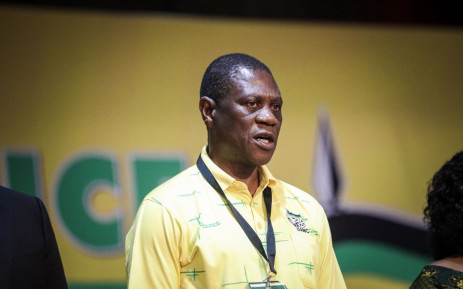
Ndaedzo Nethonzhe | 30 May 2023 19:42
JOHANNESBURG – African National Congress (ANC) deputy president Paul Mashatile has cautioned against rushing from coal-fired power stations to renewable energy.
Mashatile said that while the country was committed to the implementation of the just energy transition plan, this should be done periodically, without disrupting the power supply.
He was addressing business leaders at an ANC event in the North West.
Mashatile also warned that businesses may suffer if the move to renewable energy was rushed.
He said that with the abundance of coal in the country, South Africa must continue to utilise coal-fired power stations in order to ensure sufficient electricity supply.
“We have a lot of coal in South Africa and coal-fired power stations. We need to use those that are still workable to be able to provide the necessary electricity that we need. That will ensure that we don’t transition in the dark.”
Mashatile said South Africa would not be pressured into transitioning to renewable energy without a proper plan.
“It is important that South Africa does this in its own time frame. We know that there are those that want us to do things at their own pace.”
The ANC deputy president further said that the governing party would ensure that load shedding was reduced in the coming months.
Mozambique: TotalEnergies can resume its gas project, says head of state
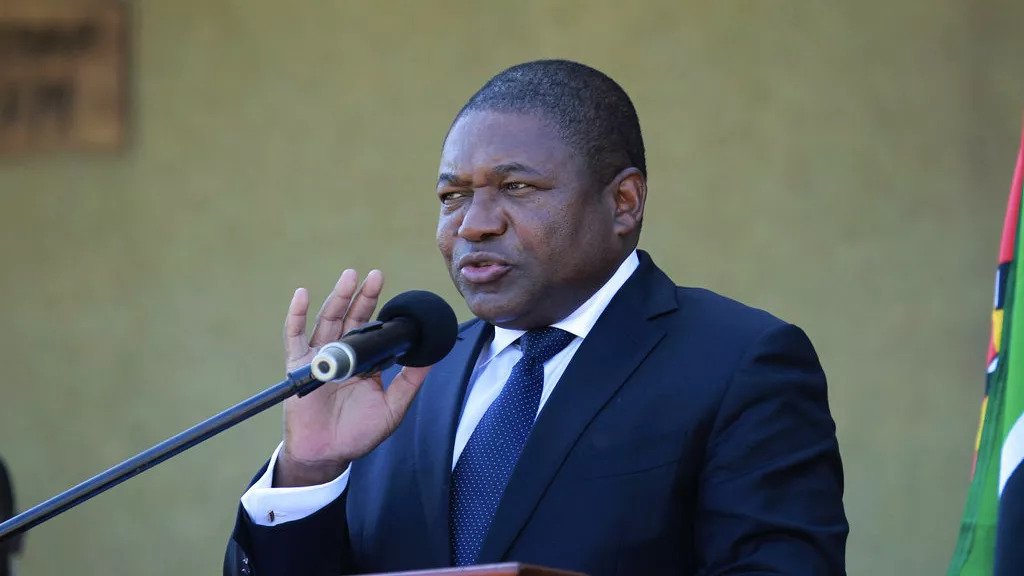
Tsvangirayi Mukwazhi/Copyright 2018 The AP. All rights reserved.
By Rédaction Africanews with AFP
The Mozambican president, Filipe Nyusi, assured on Wednesday that the conditions are met to allow TotalEnergies to resume its huge natural gas exploitation project in the country, suspended since 2021 following a major jihadist attack, a few kilometers away.
The poor but resource-rich northeastern province of Cabo Delgado, which has a Muslim majority and borders Tanzania, has been plagued by violence from armed groups since late 2017. Nearly 4,700 people have already been killed, including more than 2,000 civilians. One million have been forced from their homes.
At the end of March 2021, a coordinated attack on the coastal town of Palma forced the French group to suspend a 16.5 billion euro natural gas development project until further notice. Facilities still under construction on the Afungi peninsula were evacuated.
“The cooperation and coordination with Total is very good. The working environment is conducive for the company to resume operations at any time,” said Filipe Nyusi, speaking at a mining and energy conference in the Mozambican capital Maputo.
TotalEnergies has been cautious for several months about the possibility of restarting its operations in Mozambique. Its CEO, Patrick Pouyanné, visited the country in February and held talks with the Mozambican president.
Last month, the French giant’s Italian subcontractor, Saipem, announced preparations to resume work, saying it had been informed that “safety has improved.”
‘No funding’: Ivory Coast’s autistic children lack treatment
Issued on: 10/04/2023 – 09:45Modified: 10/04/2023 – 09:47
Around 1% of the population in Ivory Coast could be affected by autism spectrum disorder (ASD), according to estimates from the World Health Organisation. ASD is an often taboo subject, however, and treatment is hard to come by as the country severely lacks the necessary medical resources to help patients. FRANCE 24’s Sophie Lamotte and Ange Nomenyo report from Bouaké.
Local health workers in Ivory Coast travel long distances to rural areas of the country to provide assistance to autistic children and their families. Poorly acknowledged and under-diagnosed, ASD affects the lives of many on the southern coast of West Africa and is often stigmatised by Ivorians.
“In Ivory Coast it is frowned upon when you have a child that has a disorder… It brings shame to the family, and sometimes they want to keep them in the house and lock them up,” says Nicolas Kouadio, a community health worker dedicated to bringing more awareness of the subject to local populations.
Apart from the need for de-stigmatisation, Ivory Coast is also in desparate need for resources. The country counts only 5 child psychiatrists for more than 11 million children under the age of 14.
Ivorian health authorities plan to launch a vast autism screening project in 2023, but currently there’s only one public care center in the country and less than a dozen doctors trained in the management of autism.
Scientists use DNA to uncover story of Charleston slaves
Mic Smith/AP
By Rédaction Africanews with AP
Scientists in the United States are using ancient DNA to reveal the stories of 36 people who were buried in unmarked graves in Charleston, South Carolina, in the late 1700s.
Situated on the east coast, its believed that over 40 per cent of all enslaved Africans passed through the city’s port. It was the largest point of disembarkation in North America during the trans-Atlantic slave trade.
The site, on Anson Street, was discovered in 2013 as construction workers dug foundations for a new arts centre. Since then, scientists have learned more about these people and their lives by pulling genetic material from their remains.
“The chemical signatures of the bone indicated that six individuals were likely born in Africa and the rest were likely born outside of Africa, in Charleston or in North America, ” said biological anthropologist, Raquel Fleskes of the University of Connecticut.
“This is a way of restoring dignity to individuals that should have always had this dignity all along,” she said.
It’s one of a growing number of projects using ancient DNA research.
The region is littered with the unmarked graves of these enslaved people, but most of their names and stories have been lost to time.
“They lived, they worked, they died. And, now, they’re being remembered forever,” said retired city planner, Ervin McDaniel Jr, and Yoruba drummer.
Now, 36 people living in the area, including McDaniel are serving as models, their hands to be cast in bronze, to represent each of the ancestors
They will become part of a memorial fountain at the site in Anson Street.
Community members have also submitted DNA samples, hoping to find a personal connection to one of the ancestors.
So far, there have been no matches, but La’Sheia Oubré, a community outreach organiser with the Anson Street African Burial Ground Project says that doesn’t matter.
“The one loving thing about this whole project is they’re just family. We are all just family of the 36 ancestors. And that their story is our story,” she said.
In 2019, the ancestors remains were reburied at the site during a traditional Yoruba naming ceremony.
Equatorial Guinea confirms eight more Marburg cases
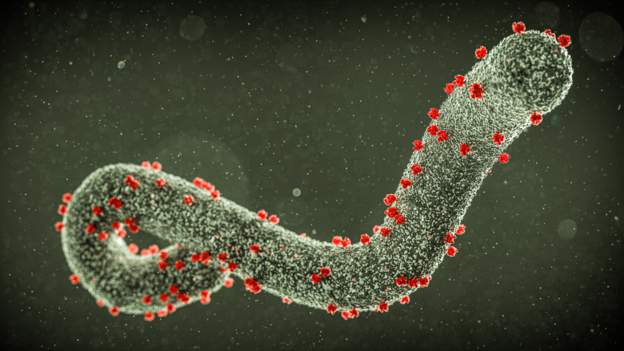
Equatorial Guinea has confirmed eight more cases of the Marburg virus disease, bringing the total to nine since February when it was first declared.
The World Health Organization (WHO) said
the cases of the viral haemorrhagic fever were confirmed following laboratory analysis of additional samples.
It noted that there were 20 probable cases and deaths.
The new cases were reported from areas bordering Cameroon and Gabon.
The cases are from areas that are 50km (31 miles) apart, with the WHO suggesting a wider transmission of the virus.
It said it was working with national authorities to step up emergency response measures.
It comes days after Tanzania, on the other side of the continent, confirmed eight cases of the viral disease – including five deaths.
Marburg is transmitted to people from fruit bats and spreads among humans through direct contact with the bodily fluids of infected people, surfaces and materials.
German firm signs $34bn Mauritania green energy deal
On March 9, 2023, 9:11 AM

A German company says it has signed a memorandum of understanding for a $34bn (£29bn) green energy project in Mauritania.
Egyptian and Emirati firms are also part of the deal.
The facility will produce up to eight million tonnes of green hydrogen and other hydrogen-based products annually in Mauritania.
The first phase is due to be completed in five years’ time.
Germany is involved with a number of clean energy projects in Africa as it moves away from dependency on fuel imports from Russia and tries to meet climate targets.
Green hydrogen is produced using renewable energy sources like wind and solar power.
Namibia makes third offshore ‘light oil’ discovery
AFP
Namibia announced on Monday the discovery of light oil off the country’s southern coast, the third such find in a year.
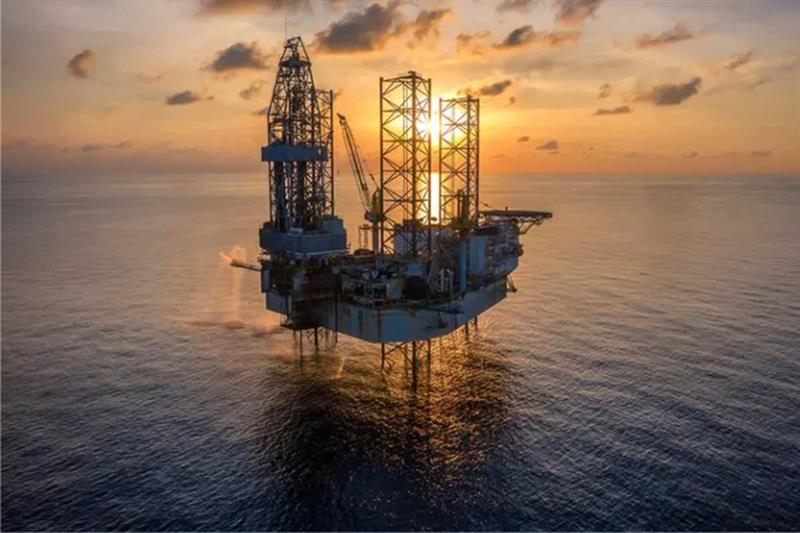
“We are delighted to announce this third oil discovery,” state-owned oil firm National Petroleum Corporation of Namibia (NAMCOR), said in a statement.
Further work is needed to determine the quality and size of the reservoir, located in deep water, some 270 kilometres offshore.
“This discovery has proven the exciting and world-class potential of the deep-water Orange Basin,” it said.
Shell and QatarEnergy each hold 45 percent interest in the joint venture with NAMCOR having 10 percent of the partnership.
This is the second find by the joint venture between Shell, QatarEnergy and NAMCOR, the first having been made in February last year.
A few weeks later France’s TotalEnergies announced the second discovery.
Namibia does not currently produce any fossil fuels, although its northern neighbour Angola is a major producer.
The promising result of the well “are a geological testimony of the significant hydrocarbon potential in the deep water,” NAMCOR said.
Kenya to expand use of world’s first malaria vaccine
BRIAN ONGORO/AFP or licensors
By Rédaction Africanews and AP
Kenya will expand the use of the world’s first malaria vaccine (or RTS,S), in the country.
At this centre at Kimogoi Dispensary Hamisi Sub-county in western Kenya, mothers bring their children to receive the jab.
Kenya is one of three countries, along with Ghana and Malawi, where the RTS,S malaria vaccine is already in use.
The Director General for Health details the vaccination campaign.
“We have so far vaccinated close to four hundred thousand children,” Patrick Amoth said.
“In Vihiga county alone at least twenty-five thousand children have been vaccinated against malaria. Within these areas, there has been a substantial reduction in deadly, severe malaria, a drop in child hospitalizations, and a reduction in child deaths.”
Isabella Osido says, vaccination has changed everything for her daugther, Faith.
Malaria is an acute febrile illness caused by parasites, which are spread to people through the bites of infected mosquitoes.
According to the World Health Organisation, the RTS,S vaccine acts against Plasmodium falciparum, the deadliest malaria parasite globally and the most prevalent in Africa.
“Since I gave birth to Faith, at the beginning she was always sick with malaria.”
“She could treat at a rural clinic, and when I saw the writings of vaccines on the wall I asked the doctor who told me that they were for malaria, and that when Faith gets to the age of six months, she would receive it, then seven months until twenty-four months. When she finished the doses for Vaccine, the doctor forgot my name (meaning she has never gone back to the hospital with malaria again).”
The extension announcement by the Ministry of Health on Monday (Mar. 6), follows a recommendation from the National Immunization Technical Advisory Group for use of vaccinaton within Kenya’s lake-endemic region and the WHO recommendation for broader use of the vaccine among children in sub-Saharan Africa and in other regions with moderate to high malaria transmission.

